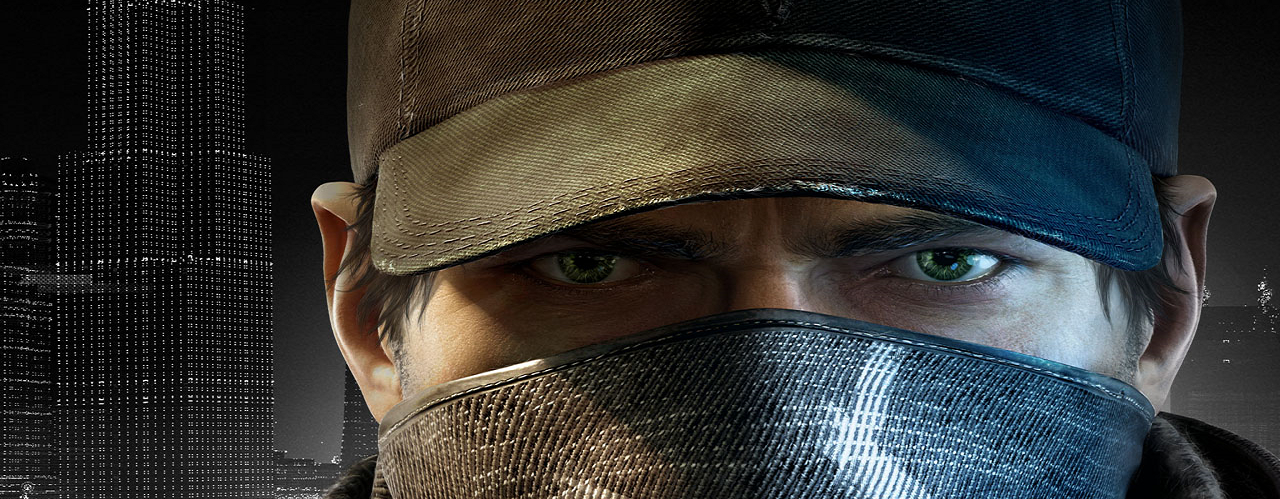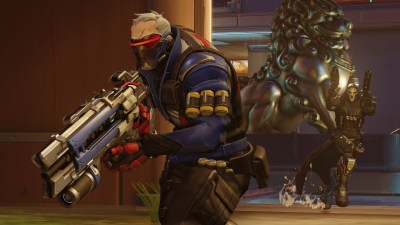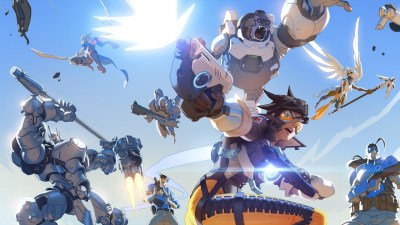Well, everyone thought we wouldn’t get much in the way of news leading up to E3 - ourselves included - but in an unprecedented and interesting turn of events, there have been several pre-E3 announcements from big publishers that showed off some upcoming AAA titles prior to the show. Is this a sign that publishers and developers are balking at the large and expensive convention? Only time will tell. In this week’s Big Four we’ll be looking back at Final Fantasy VI, speculation on the relevancy of E3, E-sports and women, and finally problems with the PC version of Watch Dogs. We hope you enjoy everything interesting from this week as much as we did. On to the Big Four.
Everyone remembers the game that did it for them, the one that defined who they were as a gamer and changed their perspective on games for the rest of their lives. For many that game continues to be Final Fantasy VI. Two decades after its release it is still hailed as a game that changed everything. Never before had mature thematic elements of death and madness been attempted to the degree that writers Hironobu Sakaguchi and Yoshinori Kitase took the script. Rather than creating characters that were avatars for players they wrote true people with deep backstories and motivations. Aiden Moher details his first experiences with Final Fantasy VI in a wonderful piece that displays the range of artwork and a lasting passion for the masterpiece.
E3 is on the horizon and it will come and go before anyone is ready. However, in recent years it has come under question as to whether or not the bloated convention still serves a purpose. There are voices on both sides of the debate over how relevant the entire event is as the game industry is rapidly changing under the feet of big publishers. While there are still a few larger titles every year, there are an increasingly larger number of more relevant smaller “indie” titles where true creative breakthroughs are taking place. With so much money being thrown around at the expo, these smaller titles are drowned out by the larger spectacle that the event is known for. Nathan Grayson of TMI feels that E3 has run its course and needs to change, but he does outline some counter points in his piece. Where do you fall on this topic?
Some of us here at Continue Play are big fans of ESports, and they have grown immensely over the last 3 years. Worldwide viewership is up and Twitch and YouTube views rival that of the Super Bowl, but ESports have a problem as there are little to no women participating in the games. But female viewership accounts for 30% of total viewers, and studies have shown that there are as many women gaming as there are men. So how could this be? Emily Gera speculates that this is largely a cultural problem as young men are encouraged to play games while girls are pushed away. Fortunately that trend is changing, but it will take some time to permeate through the culture and trickle down to games. Emily outlines the issues the sport has with marketing and growing their demographic as both aspects are heavily targeted towards men, their core audience.
Finally, there is a struggle taking place in the PC space right now. Both Nvidia and AMD are vying for dominance over the other in a tight market. It seems that the two companies have come to a head on this year’s largest title Watch Dogs, which has been noted for its sub-par performance on many computers. Forbes’ Jason Evangelho discusses the different business practices of Nvidia and AMD, and how Nvidia closely guards their code to prevent full optimization from video cards that are not theirs. AMD is speaking out against this practice citing that it is harmful to the industry and computer gamers, who they feel will point fingers at AMD rather than Nvidia for the poor performance of Watch Dogs. If you were wondering why your computer wasn’t able run the game at full spec we recommend you check out Jason’s article as it is an interesting development on the computer side of games.
The Big Four this week look at how the industry is changing, where we’ve come from in the late days of the Super Nintendo to squabbles over video card coding. And with E3 as an encapsulating mis-en-scene for the entire industry, both the good and the bad. Sexism and exclusion are still relevant in an industry that is becoming increasingly populated by women both young and old. Soon you’ll have to ask yourself as a fan how long will you need E3? As publishing moves more to a digital marketplace and in home streaming becoming ubiquitous with the industry, how long before we are able to demo any game on the floor? Developers and publishers already stream live events straight to you and your computer or console, and this isn’t a new thing. Nintendo again will not have a large press conference and instead opt for their online live event targeting their core audience rather than shouting between behemoths Microsoft and Sony. This strategy worked for them last year and it most likely will work again this year, their problem is they just need some games to save the WiiU.
Either way E3 is still Christmas in summer.
As always, here’s to another interesting week. Cheers.
The Big Four
“Life… Dreams… Hope… Where do they come from?” A Final Fantasy VI Retrospective
Think about that for a moment. The world is destroyed. At a point in the game when most JRPGs have the player traipsing through caves, sneaking into castles, and fighting rats, Final Fantasy VI pits them against a remorseless enemy who succeeds in bring about the apocalypse. It’s not pre-apocalyptic, or post-apocalyptic, it’s the end of the world in real-time. So much of the early game is spent building belief in the vision of the Returners, a vigilante group that is set on bringing down Gestahl’s empire, that the pain and disbelief is palpable when Kefka, not Gestahl, is revealed to be the true antagonist.
At the time of Final Fantasy VI‘s release, few games had the courage and foresight to so dramatically subvert players’ expectations. We’re a merry gang of heroes, right? Sure, things will go wrong, but we’re out to save the day, to stop the bad guys. Nope. Full stop. You’re wrong. A year passes in the game, then, after the Floating Continent has crashed into the sea, the World of Balance has been upset by ruin, you’re back at square one: a single character, no party, no airship.
Every legendary story has the single moment when the reader/viewer/player realizes that they’re participating in something special, something beyond the bounds of the average. From George R.R. Martin’s Red Wedding, to Frodo’s claiming of the Ring, to Rosebud, that moment transcends the medium and cements itself in the participant’s memory, never to be forgotten, with a feeling never to be recaptured. Kefka’s triumph is the moment when Final Fantasy VI goes from being an interesting, progressive mid-90s JRPG, to one of the most iconic and important videogames of the decade. Since then, videogames have grown up, and shocking twists aren’t quite so unexpected anymore, but at the time, the courage of Sakaguchi and Kitase was unprecedented.
Does E3 Still Matter?
It’s been a weird pre-E3 month. Companies like Microsoft, EA, and Bethesda have made big announcements before the big show. Nintendo’s not even doing an official press conference at all. Is there still a point to E3? Or has it become a walking, talking, slowly dying dinosaur?
It’s been a sort of inevitable question among many fellow journos I’ve run into this month. What’s the point of E3 these days? What does it actually accomplish anymore? Who’s tuning in, and what is everyone trying to show them? Is it for diehard fans? The mythical, unicorn-like “mainstream audience”? Some awkwardly clashing hybrid of the two?
Jason still adores E3, but I’m on the fence. We’ve seen a preposterous number of mic-drop-level announcements happen before the show this year, but that might actually be a wise decision for publishers. They’d probably get crushed in the rhino-stampede-like flood of mid-E3 announcements otherwise. It makes some degree of sense to disperse these things, to let folks like you and me really dig into them on our own time instead of hurrying along like we’re trying to get in line for every ride at the carnival (and believe me, E3 is absolutely a carnival).
“On the other hand, if we deemphasize the importance of E3 even more, it makes less and less sense for anyone to actually go there—let alone spend the amount of money some people do just to attend and demo a couple games. Developers and publishers from outside the US, especially, have to go through tremendous trouble to coordinate their E3 song and dance, not to mention halt development on a lot of games to produce demos and send development leads to E3’s grimy, sweaty, desperate frontlines.
Where are the women in eSports?
The world of pro-gaming saw a jump in popularity among women last year, with its female viewership seeing an increase from 15 to 30 percent, SuperData Research told Polygon following recent research done in collaboration with Newzoo. But even with the growth in audience, women seem almost entirely absent in the professional gaming arena.
Currently there are few active female users in the pool of professional StarCraft players, including Sascha “Scarlett” Hostyn, who previously saw success during the 2012 StarCraft 2 World Championship Series in Canada and later the Battle.net North American Championship that same year. There are no female professional League of Legends players in North America.
While often blamed on sexism in the pro-gaming community, the low numbers of professional gaming women is in part a result of marketing strategies aimed to encourage a much more specific demographic: men between the ages of 21 and 34, according to the research company. As companies like Intel and Coca-Cola begin to invest in eSports they do so with an eye toward connecting not with the profession as a whole, but specifically “affluent young men,” according to a study from SuperData Research.
Why ‘Watch Dogs’ Is Bad News For AMD Users — And Potentially The Entire PC Gaming Ecosystem
When it comes to PC games, there’s a not-so-subtle war being waged between AMD and Nvidia for the continued loyalty of their users. The battlegrounds involve things like driver optimization and the implementation of proprietary features, software, and tools to give each graphics card manufacturer a competitive advantage.
Ubisoft’s Watch Dogs is the latest PC title to take advantage of Nvidia’s GameWorks, a robust collection of tools that allow game developers to produce a visual experience which epitomizes Nvidia’s rallying cry: “The Way It’s Meant To Be Played.” Developers license these proprietary Nvidia technologies like TXAA and ShadowWorks to deliver a wide range of realistic graphical enhancements to things like smoke, lighting, and textures. Nvidia engineers typically work closely with the developers on the best execution of their final code.
Recent examples of Nvidia GameWorks titles include Batman: Arkham Origins, Assassin’s Creed IV: Black Flag, and this week’s highly anticipated Watch Dogs.
As you’re suspecting from the headline, Nvidia’s GameWorks is only good news for Nvidia, their development partners, and their GPU users. That’s logical, and it serves a sizable slice of the market. According to AMD’s Robert Hallock, it’s terrible news for the PC gaming ecosystem on the whole.
Eye Candy
Requiem For The Kinect
Darren Korb & Ashley Barrett Live @ PAX Prime 2013
Game Theory: How Deadly is Super Mario’s Bullet Bill?
Free To Play: The Movie
Extra Study Material
With VR headsets becoming the gaming phenomenon du jour at the moment, it isn’t a major leap to assume that more wearable devices could be incorporated into our lives and games. “How Wearable Devices Could Get Doctors’ Stamp of Approval“
Two Final Fantasy VI articles in one week? Well they are both interesting so they both made the cut, but this one is a little different. User SWE3tMadness at Destructoid gives a critical analysis of the final boss music from what we consider to be the best RPG ever. “Final Fantasy VI’s ‘Dancing Mad’, a critical analysis“. For more on Final Fantasy VI, check out our Defining Moments article right here on Continue Play.
A Continue Play article this week? It was bound to happen sometime, and Nic Brunce gives his top 10 list of female heroes that don’t make a big deal about being a girl. “10 Female Protagonist That Don’t Care That They’re Female“
The Evil Within made huge headlines this week as the pre-E3 demo was available for press at a Bethesda event earlier last week. Tina Amini got her hands on the demo and lets you know exactly what she thinks about this spiritual successor to Resident Evil. “The Evil Within Made Me Want To Throw Up“
Early access games don’t seem to be slowing down as Steam seems perfectly content with the revenue they bring into their market. Nick Diamon over at Quarter To Three explains the lessons the industry should learn from the past year of early access gaming. “Early access games offer hard lessons to consumers and developers“
Speed running games has become quite the thing for a few of us here at Continue Play, but it would seem that quite a few people do not understand the nature of using glitches when running a game. “Why Speedrunners Use Glitches“
A.V. Club’s Samantha Nelson discusses a handful of board games where it is more fun to play as the villain than with the group. Who doesn’t like to secretly sabotage your friends? “Screw heroism—these board games let you play the villain against your friends“
Mainstream motion controls are dead but leave it up to hipsters to revolutionize how we interact with games by inventing the Punch The Custard controller where you literately punch a bowl of custard. “Kinect Failed, But That Doesn’t Mean Cool Game Controllers Are Dying“
Rock, Paper, Shotgun’s Adam Smith interviews himself about his time playing Distant Worlds – Universe. “Wot I Think: Distant Worlds – Universe“
Developer Ready At Dawn speaks at a pre-E3 event about why they delayed The Order:1886 and what they plan on doing with that time. “Why PS4 exclusive The Order: 1886 was delayed to early 2015“


